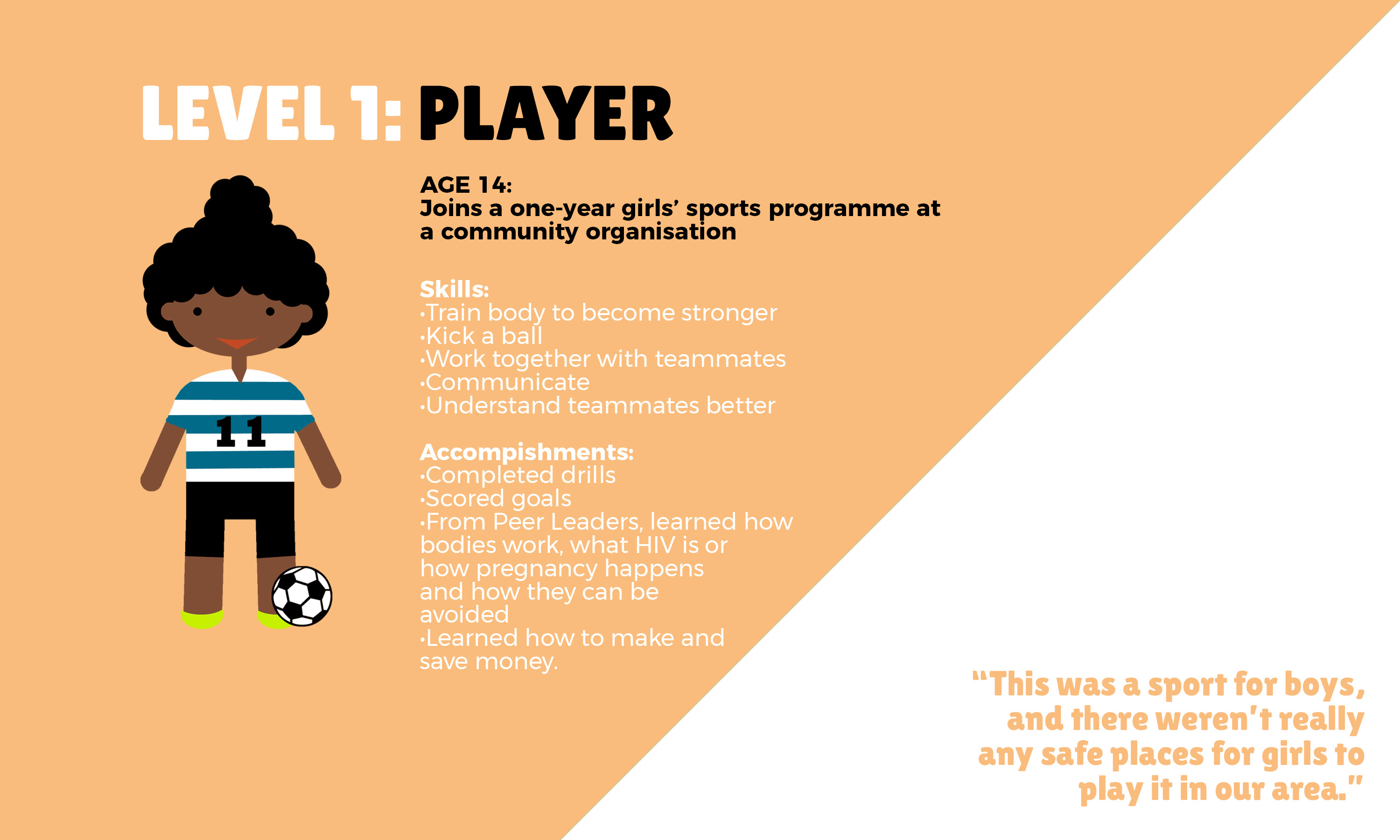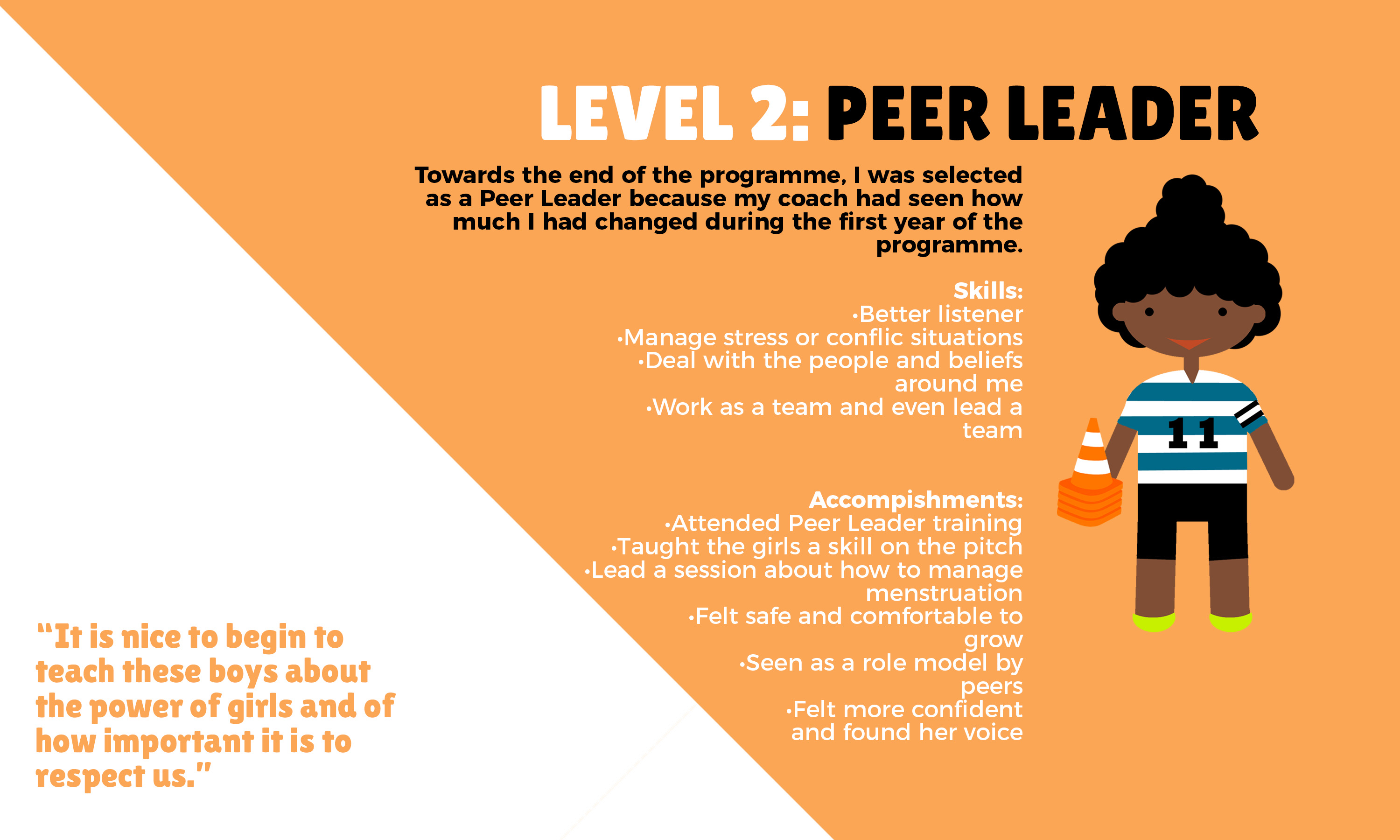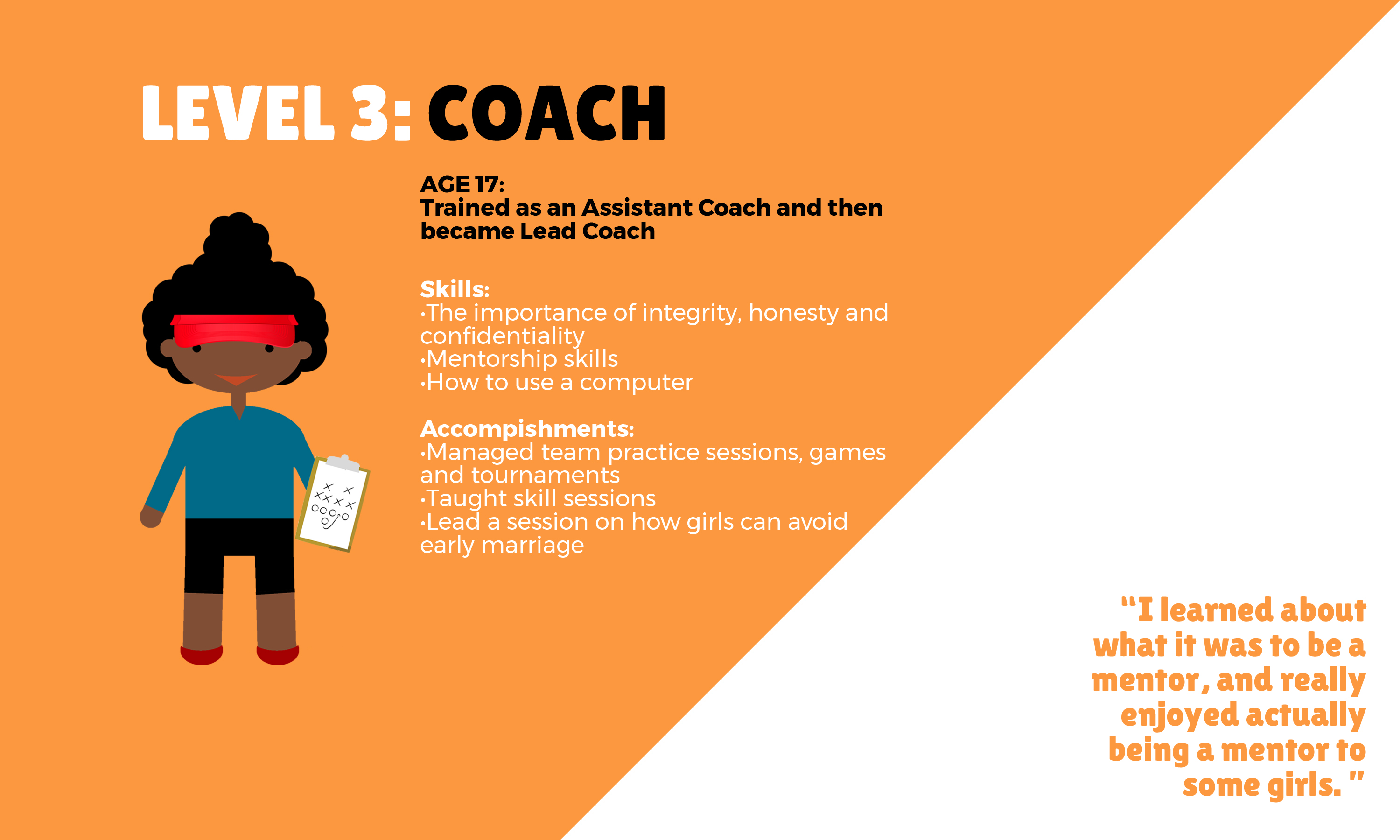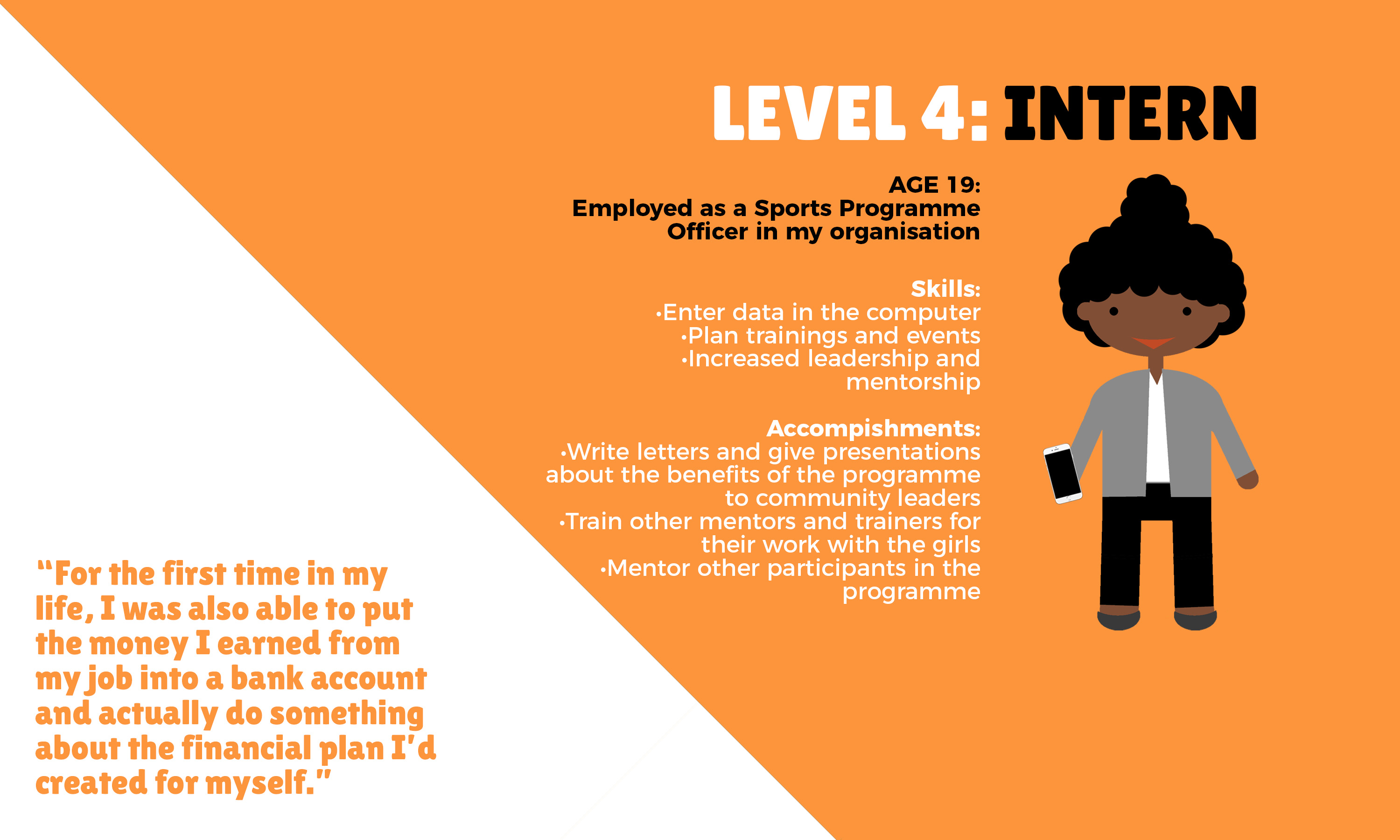The pathway to leadership and economic empowerment is not a linear progression through a step-by-step process of increasing responsibility, but instead must respond to broader needs and to the context in which a girl lives. Despite this variety of needs, Women Win has identified a generic pathway to move a girl from player, to peer leader, to intern, and finally, to employee or entrepreneur/self-employed. Along this pathway, and at each level, organisations should provide girls and young women with the opportunity to develop and practice different transferable self/people/process skills through a variety of developmental opportunities. Below you will find a description of each level alongside a graphic, which provides an example of a girl at that level, the types of transferable skills she might be learning and the successes she experiences. Remember, this is just an example of a pathway for girls and should be adapted to each programme and the context in which the girls' live.
Level 1: Player
When a girl is first introduced to a sport programme, she becomes a player on a team and must understand basic self, people, and process skills to keep her safe and enable her to participate and enjoy sport with her peers. These skills include: coping and self-management, communication and interpersonal skills, and decision making and evaluating the consequences of actions for self and others.
At this entry level, a girl must communicate to family members why it is important for her to participate in sport. She will need the support of programme leaders, coaches, and peer leaders to make the case for participation, including family visits and community outreach. Leadership development opportunities can be incorporated from the start in very small ways. This entails observing and drawing attention to the unique skills and qualities of each girl, and asking them to demonstrate a skill or model behaviour in a low risk practice environment. At this stage, it is important to give all girls the chance to lead, especially those who are less extroverted or have quiet leadership qualities.

Level 2: Peer Leader
Becoming a peer leader is a process that requires learning new skills and qualities, as well as having the time to practice individual strengths and non-strengths. We have grouped these peer leader competencies into two sets. The first set focuses on the competencies needed to create a high performing team: managing feelings, emotions and stress, negotiation/conflict management skills, and analysing relevant information, attitudes, social norms, beliefs, and peer and media influences. The second set focuses on the power of teamwork and problem solving on and off the field: taking action with integrity, cooperation and teamwork, and problem solving and identifying alternative solutions. Practice sessions and competitions can be used to draw attention to and build girls’ skills in these areas. While the timeline will differ for each girl, these self, people and process skills will enable a girl to learn about her own qualities and build a unique skill set, which contributes to the performance of the team. At this point in a girl’s leadership pathway, she should be comfortable demonstrating her leadership skills on and off the field, and take pride in representing her peers and her organisation.

Level 3: Coach
By the time she becomes a coach, an adolescent girl or young woman is likely to have already served as an assistant coach or peer leader, typically on the pitch. By Level 3 as a coach (unlike a peer leader), girls are expected to engage and collaborate with external stakeholders (community leaders, parents, teachers etc.) in addition to leading teams of girls in the organisation. At this stage of leadership development, girls gain valuable skills related to personal responsibility and accountability, managing and inspiring a team and setting group goals. They also explore how to delegate authority and motivate others and make decisions with integrity. Off the field, these life skills translate to a fundamental quality required for teamwork and for building trust in any setting. Often times, this is a paid position, or girls might receive a stipend to cover their travel and time.

